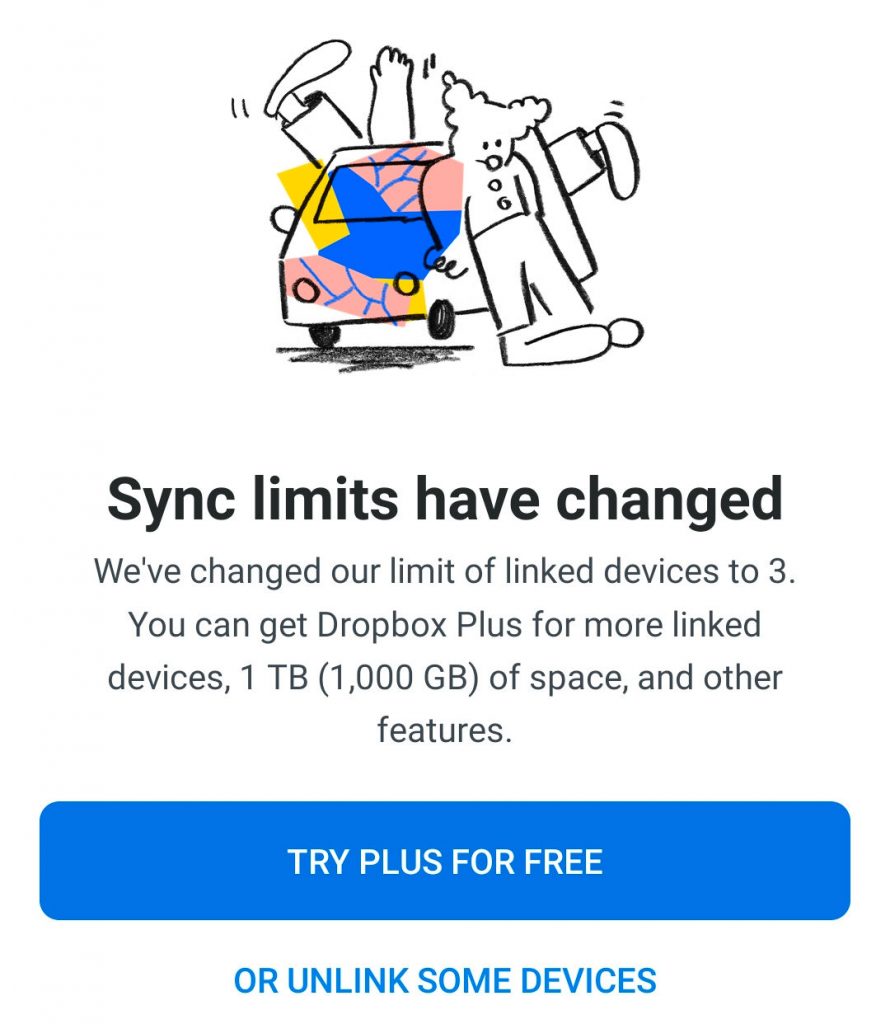

Don't sit there being pedantic about calling it "GNU/Linux" twice in a one-line post and then try to argue that web-based folder syncing is so hard to do that you're reliant on a free service to do it for you.Pro Tip: Decide the type of solution i.e personal use, business use, or a combination of both before comparing cloud storage services. This is a solved problem, in several ways. Or, there's Seafile, Pydio, S3/Wasabi buckets with rsync, or for the price of the higher tier Dropbox individual plan, will do a one-click install of Nextcloud with 2TB of storage *and* a VPN *and*.y'know.a seedbox. Or, you could simply pony up for a paid Dropbox subscription, or pick which three devices you actually-need to have syncing regularly and use the WebUI to download/upload on subsequent ones. Or, Resilio Sync is pretty good and simply requires devices to be on at the same time to replicate data. If that's still too much and you're willing to put up with a performance dip, Nextcloud works on a Raspberry Pi the DietPi distro has an auto installer for it.


If not, Nextcloud does work over a custom port I can speak from personal experience on that one.Īs for leaving a storage server at home turned on, I mean.if it's that much of an imposition, both Synology and QNAP have appliances which can handle this, and either run Nextcloud or their own first party plugins and applications which have Dropbox-like functions. You should be able to get it working that way. That being said, while I can't speak for every ISP, the consumer ISPs in my area only block 80 and 25 443 is open even on consumer connections. pay the ISP to upgrade to a plan that allows forwarding ports and leave a PC at home turned on all the time? lease a VPS on which to run NextCloud or B. Or are GNU/Linux users instead expected to either A.


 0 kommentar(er)
0 kommentar(er)
